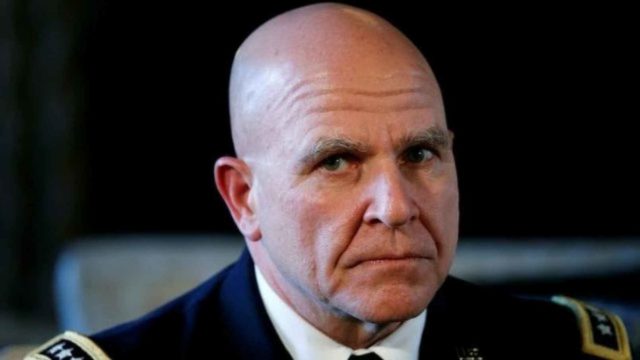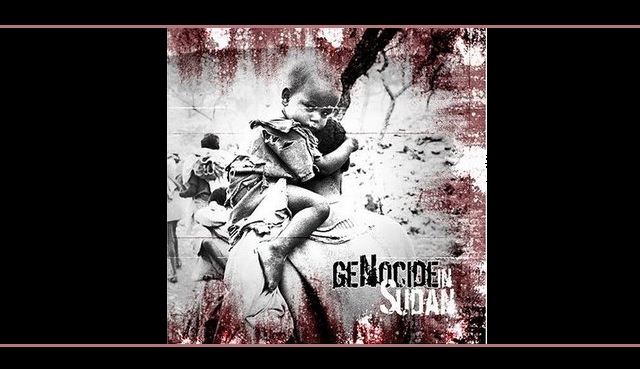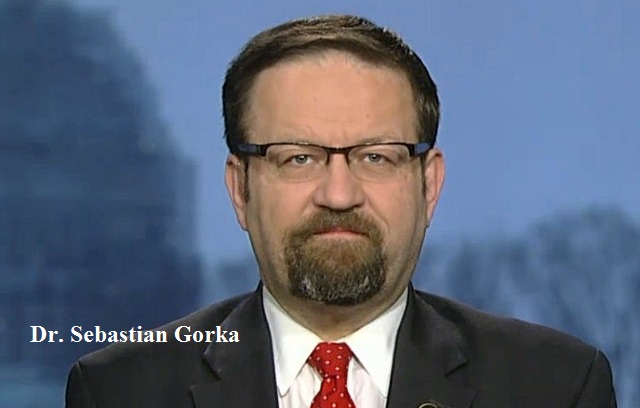Sudan’s volatile security situation and human right abuses have worsened despite the partial lifting of sanctions by former President Obama, just days before the onset of the Trump Administration in January 2017. Under the terms of that partial sanctions lifting, there is a six months ‘look back’ period which could be reversed if evidence of ethnic cleansing, genocide or support for Jihad terrorism persisted. This report graphically presents evidence that genocide, war crimes and human right abuses have not ended in Darfur, Kordofan, and Blue Nile regions of the Sudan. Random killings, torturing, rape and extra-judicial executions continue unabated in all parts of these regions. There is evidence of aerial bombing attacks and the alleged use of banned chemical weapons. Syria is not the only Muslim country in the Middle East and Africa where indiscriminate use of weapons of mass destruction have been used against civilian populations. This has been delivered through by bombing attacks of the Sudan Air force. Both China and Russia are supplying weapons and equipment in support of Sudan’s genocidal Jihad funded by Gulf Emirates and Saudi Arabia. Time for the Trump Administration to re-impose Sudan sanctions and to consider establishing no-fly safe zones in Sudan conflict areas.
Sudan peace force Massacres of Kababiish and Hamar Tribes in South Kordofan
Over 119 people were killed in South Kordofan in early April 2017 and the fighting continues. This is another tragedy wrought by President Bashir with funding support from the Arab cabal of Qatar and Saudi Arabia. The massacre of 119 Harmar and Kababiish tribal people comes in the wake of a $200,000,000 gift from Her Royal Highness Sheikha Mozah Bint Naser of Qatar donated while on a recent trip to Sudan for the purpose of helping children in the Kordofan region. As we have written previously, the actual use of those funds was to support recruitment and arm more Janjaweed Arab “peace force” militias.
The Sudan Tribune reported Kababiish tribesmen shot and killed 36 people of the Hamar tribe. These people had their hands tied, were shot, slaughtered and their bodies burned and buried. According to Ambassador Hassan Ibrahim Jadkerim those involved in the massacre were wearing Sudan regime’s military uniforms and were armed with heavy weapons provided by the government.
According to the eye witness report the fighting erupted between the two tribes of Hamar and Kababiish because of alleged stolen camels, despite both tribes using government supplied weapons and trucks killing each other. Both tribes are trained and armed by the government and they are part of the Janjaweed peace forces militias. The current governor of South Kordofan, Ahmed Harun, an indicted war criminal wanted for arrest by the International Criminal Court ICC), has been organizing, training and arming these militias to attack the people of Darfur, Blue Nile and South Kordofan. He is directly responsible for these government trained militias, financially sponsored by the State of Qatar. Fighting has been going on between these two tribes since the beginning of April, 2017. Instead of providing security protection, the Sudan regime National Intelligence and Security Service (NISS) is supporting both conflicting groups with both weapons and logistic supplies.

Mass killing of Hamar-Kababiish by Sudan regime’s tribal militias clashes April 6, 2017 Sodori, North Kordofan, Sudan
The Sudan regime NISS security apparatus recruits, organizes, trains and arms these tribes with heavy weapons. The regime also provides them with trucks and logistic supplies. Moreover, the Bashir regime has granted them with full authority to kill anyone who opposes the implementation of the Arab Coalition plan directed at establishing a virtual Caliphate making demographic changes in Darfur and in the entire African Sahel region.
The Janjaweed peace forces Arab militias were established to enable the survival of the Bashir regime, fomenting international Jihad terrorism; the end state of the Muslim Brotherhood organization of the Islamic movement. The Bashir regime duplicitously arms these Arab militias. However, when they committed heinous crimes, such as the massacring innocent civilians, the regime will deny that it had connections with them calling them outlawed groups. It is the regime’s strategy arming such groups and denying them when they committed crimes, so that they did not have to reveal that to the public and the international community. Effectively, the regime would eliminate any Arab militia group that refused to recruit its militants to fight for the regime. The fighting between Kababiish and Hamar is not the first instance of Arab militias fighting among themselves. It is an example of the internecine war to eliminate those opposing the Bashir regime to implement the strategy of the Arab Coalition.

Arab tribal militias armed by Sudan regime Sodori, North Kordofan, Sudan March 6, 2017
Arson and Killing in Darfur
The Sudan NISS and its armed Janjaweed peace force militias continue executing innocent civilians. They are massacring people, robbing, seizing of properties, committing arson and raping women. This is in furtherance of its strategy to dismantle Internally Displaced Persons (IDP) camps. The regime intelligence apparatus recruited and trained individuals unleashing them to conduct arson of homes in IDP camps and markets. Since late March 2017 several IDP camp homes and shops were burned in Nertiti, Zalengi, Central Darfur and Greida in South Darfur, and Garsila, in the Western Darfur region. These fires destroyed homes, food supplies, clothes and belongings of the IDP residents. Losses from this arson in Greida alone were estimated at approximately $3 million US dollars. The government’s intention is to force the IDP camp residents into cities or move elsewhere so their land and wells are left to Arab Janjaweed peace force new settlers.

Sudan’s Rapid Support Forces (reorganized Janjaweed militias. Formerly riding horses and camels but currently equipped with Toyota Pickup trucks and heavy weapons). Sodori, North Kordofan, March 6, 2017
The National Congress Party Sudan regime is surviving only through crisis. The regime’s security apparatus instigate such crises just to create confusion among Arab Janjaweed peace force militia and Darfur people alike and keep them busy fighting among themselves. The tribal clashes in Darfur and Kordofan regions are using government provided arms killing hundreds of people. These clashes are fomented, logistically supported and controlled by the NISS.
On March 31, 2017 nine Janjaweed militia fighters riding camels attacked a group of villagers driving their livestock to Tawal Shala water wells in eastern Jebel Marra. The militias opened fire and killed 3 people on the spot while others being pursued escaped for their lives. They seized all the possessions of those people killed including cows, donkeys and goats.
On April 3, 2017 Janjaweed militias shut and killed two brothers, Ali Ismael and Hamad Ismael. They were caught with their motor-cycle in the Kasab IDP camp, Kutum, North Darfur.
On April 6, 2017 another group of Janjaweed militias riding camels intercepted a vehicle between Buram and Greida killed one man and wounded two others then robbed the passengers.
Human violations in Darfur have continued for more than fifteen years. In addition to Janjaweed militias’ attacks, the Sudan government planes continue air bombardment on Jebel Marra and elsewhere. On April 6, 2017 Sudanese war planes dropped bombs in the area west of Dereibat.
These attacks demonstrate that the Sudan regime and its militias target innocent civilians and their property.

Muslim prayers for two Brothers: Ali Ismael and Hamadi Ismael Janjaweed Militias shut and Killed and taken their motor cycle in Kasab IDP camp, Kutum North Darfur April, 3, 2017
Why Obama Lifted Sanctions on Sudan
Why did the former Obama Administration lift sanctions on Sudan if its militias continued to kill innocent people? Over 3 million people of Darfur are now living in IDP and refugee camps and their land is occupied by Janjaweed militias.
By lifting partial economic sanctions President Obama ignored long-standing US commitments to put an end to Sudan’s years of internal conflicts and security instability caused by the National Islamic Front/Muslim Brotherhood regime. Former US President Obama’s cooperation with the Islamic regime in Khartoum undermined United States engagement that might have prevented human right violations and protected indigenous populations targeted for ethnic cleansing by the Sudan regime. Instead the Obama Administration’s inaction in the face of these humanitarian violations by President Bashir was pursued in the vain hope of obtaining of counterterrorism intelligence information. Effectively the Bashir regime provided little useful information and cooperation with US in the global war on terrorism. The National Islamic/Muslim Brotherhood regime continued to recruit, harbor and support terrorist organizations including fighters from the Islamic State. Obama’s cooperation with the Sudan’s indicted President Bashir compounded the problem by opening a door for other Western governments, such as Great Britain, Italy and Germany, to establish various types of bilateral and multilateral economic and security cooperation agreements despite the Bashir regime’s worsening human rights record.

Sudan’s NISS burning of IDP camps and markets, March 2017 in Greida, South Darfur, Sudan
Failure of African Union-United Nations Hybrid Operation in Darfur
The African Union-United Nations Hybrid Operation in Darfur (UNAMID) deployed in Darfur since 2007 with the mandate to protect civilians has unfortunately has become a puppet of the National Congress Party regime of President Bashir. Since its inception in Darfur none of the UNAMID Secretaries have reported human right violations in Darfur. None of the UNAMID forces have protected any civilian that has his or her life threatened by the Janjaweed militias. Most of the killing, rape, torture, and other human right abuses committed by the Janjaweed occur close to or in the vicinity of UNAMID camps. The Janjaweed militias commit these crimes because they know UNAMID’s movement is strictly controlled by the regime’s security forces who are mainly Janjaweed militias themselves. That is the reason UNAMID forces could not investigate incidents or protect innocent civilians even one kilometer outside their camp. The UNAMID forces cannot move without obtaining permission from the Sudan regime. Effectively they cannot file a report or conduct an independent investigation without consulting the Sudan regime’s officials and its security forces.

Sudan NISS burning of IDP camps to dismantle Otach IDP camp, Nyala South Darfur, Sudan March 7, 2017
Failure of UNAMID to investigate incidents and write independent reports is probably the main reason that the international community distanced itself from Darfur. Darfurian people were internationally neglected and abandoned because UNAMID forces deployed to protect them had no capability to freely conduct operations.
The organization abandoned its primary role of protecting the innocent civilians and monitoring of human right violations instead policing the behavior of the Sudan government. Witness the newly appointed Secretary of UNAMID openly demanding UN pressure Darfur resistance movements to cease armed struggle and sign false peace deals with the Bashir regime. Peace deals that bring no benefit to our people but instead more suffering.
How could the international community appoint a South African as head of the UNAMID mission in Darfur since South African President Jacob Zuma refused to arrest President Bashir in his country even announcing they were resigning membership in the International Criminal Court? The Darfur people have not healed from the wounds of Thabon Mbeki who became the right hand man of Bashir establishing false roadmaps and calling upon the international community to rally behind the genocidal regime.
The former South African President Thabon Mbeki who worked in the Darfur crisis for over 9 years said he brought peace in Darfur because he had been working closely with the African Union to help maintain Bashir in power and undermine the ICC.
The newly appointed Chief of UNAMID is another South African who has already begun ignoring human right violations that the regime is continually committing against the people of Darfur. Addressing the UNSC on April 4, 2017, the South African diplomat failed to mention Janjaweed militias committing daily atrocities on innocent civilians on Darfur. He also failed to mention the mission’s inability to provide security to the very people that they were mandated to protect. He called the Janjaweed, a well known government militia, just bandits.
The United Nations Security Council must appoint qualified officials who are impartial and empowered with the capacity to speak truthfully and act against the menace of genocide. Peace and justice for the Darfurian people must prevail.
The UNSC has no capability to force Sudan’s regime to stop human right violations. Moreover, the Bashir regime has the power to dismiss any UN employee working in Sudan. The UNSC cannot protect them. Ivo Freijsen the Coordinator of Humanitarian Affairs in Sudan was expelled. Over the last two years the Bashir regime expelled four UN officials from Sudan while the UNSC did nothing. Sudan simply did not recognize any of the UNSC resolutions. The UNSC issued over 18 resolutions on Darfur but none of these resolutions were implemented.
Indicted President Bashir has not been committing genocide alone without aid from Arab countries. China and Russia supply arms. Kuwait, Saudi Arabia, Qatar, European Union and some European states provide financial assistances that ends up recruiting and training Janjaweed Militias, Rapid Support Forces or what President Bashir calls ‘peace forces.’ African Union and many Arab League member states collectively provide protection for Bashir to avoid arrest and prosecution by the ICC.
Conclusion
The Chinese and Russians are providing weapons that Sudan President Bashir uses to kill our people. Arab countries and the European Union provide funds that are funneled to finance the recruitment of Janjaweed peace force militias that commit genocide against indigenous people of Sudan. We seek US and international assistance to stop the genocidal Jihad regime of President Bashir by seeking his arrest and establishing no-fly zones in Darfur, Kordofan and the Blue Nile region to save the lives of the country’s indigenous people.
ABOUT LIEUTENANT GENERAL ABAKAR M. ABDALLAH
Lt. Gen. Abakar M. Abdallah is Chairman of the Sudan United Movement (SUM). He is a native of North Darfur who joined the Sudan Liberation People’s Army (SPLA) in 1984 and became active in the Nuba Hills and Darfurian resistance. In 1989 he joined the Patriotic Salvation Movement in neighboring Chad based in Darfur. He served as an officer in the Chadian army for 23 years. He held senior intelligence and counterterrorism posts including as Coordinator of the Multi-National Joint Task Force of Nigeria, Chad and Niger. He is a December 2002 graduate of the Intelligence Officers’ Advanced and Combating Terrorism Courses, US Army Intelligence Center and Schools, Fort Huachuca, Arizona. He was a Graduate Terrorism Fellow and is a Graduate of the College of International Security Affairs, National Defense University, Washington, DC, 2005. He was an International Fellow and Graduate of the US Army War College, Class of 2008.
EDITORS NOTE: Jerry Gordon, Senior Editor of the New English Review assisted in the preparation of this article. This column originally appeared in the New English Review.
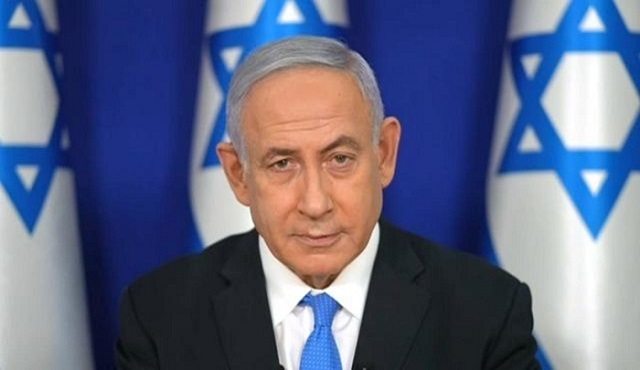

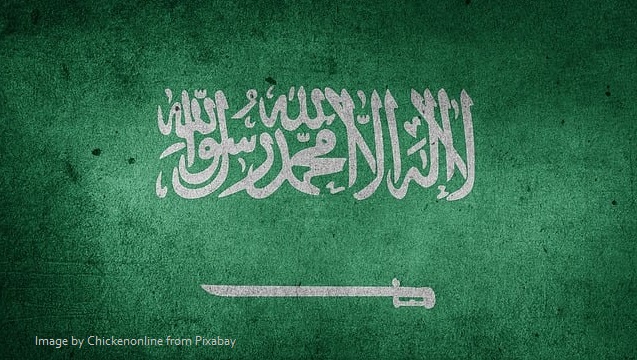
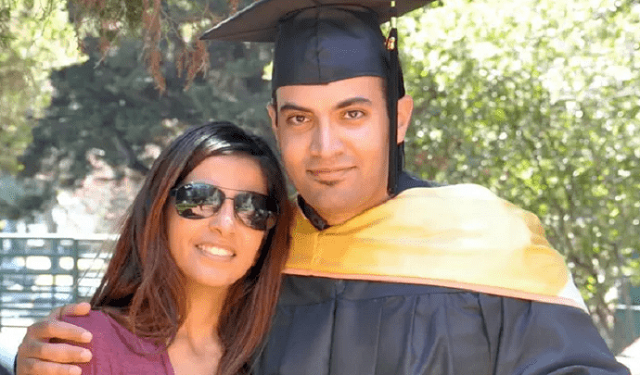
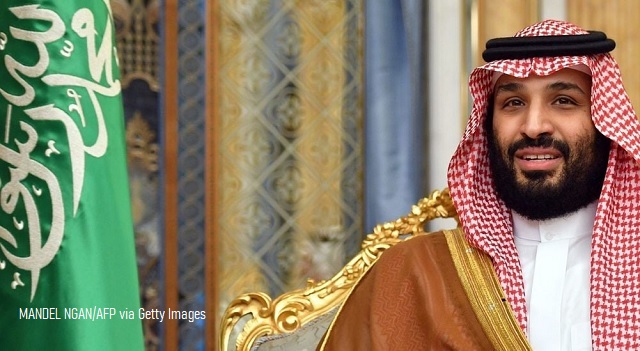
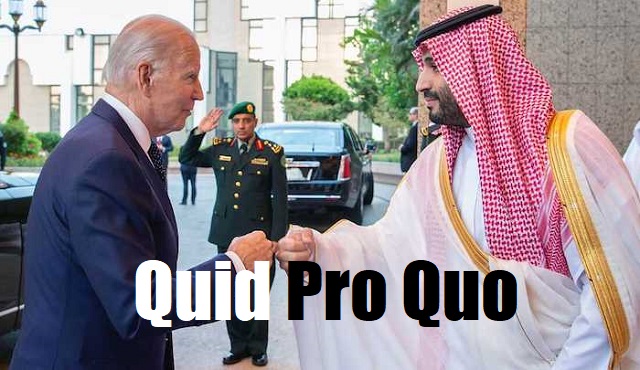
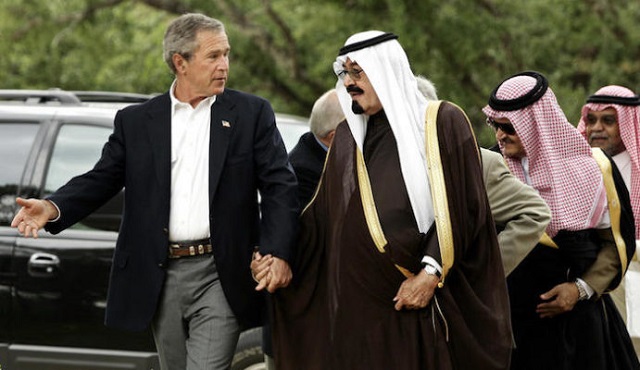
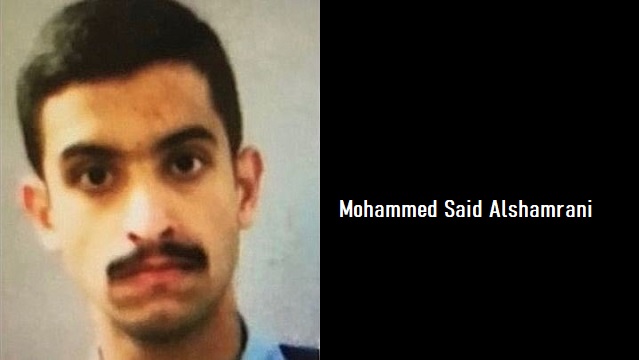
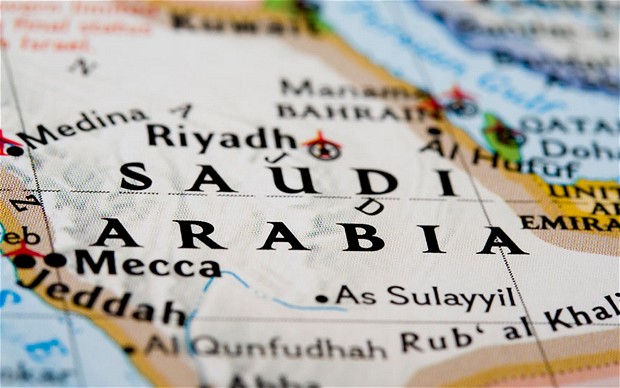
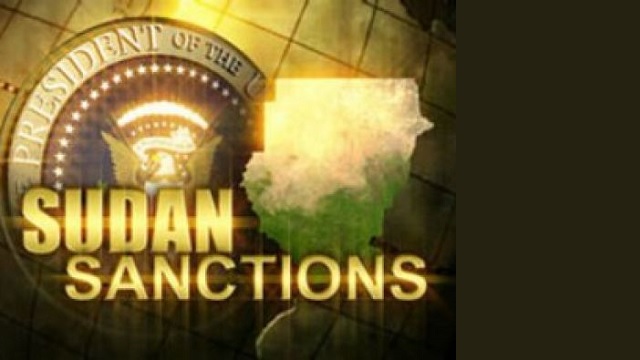
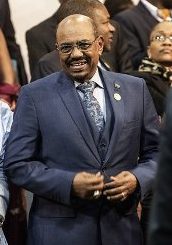

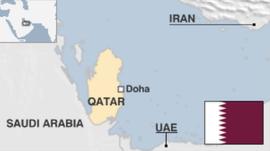 The Emirate of Qatar is a peninsula that juts out from Saudi Arabia into the Persian Gulf. The only overland route out of Qatar is by way of Saudi Arabia and if that route is blocked, the only way to reach Qatar or leave it is by air or sea. However, flights to and from Qatar pass over Saudi air space part of the time and ships from or to Qatar have to pass through Saudi territorial waters. This means that Saudi Arabia can in effect declare a total blockade on Qatar if it so desires. It has never done so before, but it began the process on June 5th.
The Emirate of Qatar is a peninsula that juts out from Saudi Arabia into the Persian Gulf. The only overland route out of Qatar is by way of Saudi Arabia and if that route is blocked, the only way to reach Qatar or leave it is by air or sea. However, flights to and from Qatar pass over Saudi air space part of the time and ships from or to Qatar have to pass through Saudi territorial waters. This means that Saudi Arabia can in effect declare a total blockade on Qatar if it so desires. It has never done so before, but it began the process on June 5th.